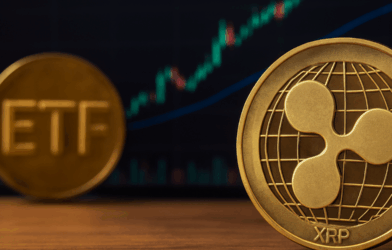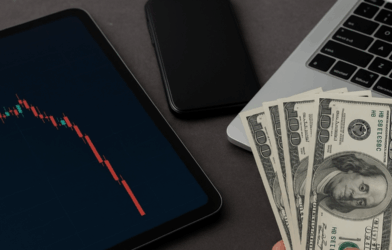In 2025, the tug-of-war between traditional banks and emerging financial innovators has reached a boiling point. The debate is no longer just about regulation or technology — it’s about who owns financial data and who gets to decide how it’s used. The core of this clash is something deceptively simple: open banking.
At its heart, open banking allows customers to share their financial data — securely and with consent — with third parties such as fintech platforms, digital wallets, or crypto exchanges. This data-sharing is what powers everything from instant credit scoring to seamless crypto on-ramps. Yet, as the lines between banks, fintech startups, and crypto ecosystems blur, old hierarchies are being challenged. Banks want to keep control. Fintech and crypto firms want freedom. Regulators, caught in the middle, are trying to balance innovation with security.
Why the Conflict Escalated
For decades, banks have been the guardians of customer data. Every transaction, every loan application, every salary deposit — all of it sits within their walls. But with fintech and blockchain-based finance rising fast, this monopoly is being questioned.
Open banking regulations, already popular in Europe and parts of Asia, have been expanding in the United States. However, several large banks have recently signaled their intent to limit or monetize access to customer data through API fees or restrictive usage policies. This move has triggered an uproar among fintech and crypto firms that depend on these connections to operate.
Fintech CEOs argue that financial data belongs to consumers, not institutions. They claim banks are trying to impose “data tolls,” effectively turning open banking into closed banking once again. Crypto leaders have added their voices, saying that if traditional institutions continue to block data sharing, blockchain-based financial systems will simply bypass them — offering direct peer-to-peer alternatives that make banks obsolete.
Regulatory Reawakening: The Role of Policy Makers
The regulatory response has been swift. The U.S. Consumer Financial Protection Bureau (CFPB) and other global regulators have reopened discussions around open banking frameworks to address this power struggle. Policymakers are attempting to design new standards that let consumers control their data safely while ensuring banks are not unfairly exploited by third-party aggregators.
The new frameworks under discussion emphasize API security, consumer consent, and interoperability. The aim is to create a balanced ecosystem where innovation thrives, but accountability remains intact. Yet, it’s not an easy balance to strike. Regulators fear that too much restriction will stifle competition, while too little oversight may lead to privacy breaches or financial instability.
In many ways, this mirrors the early internet era — when large telecom players tried to maintain control over data infrastructure while startups built disruptive applications on top. Today, banks are the telecom giants, and fintechs and crypto firms are the application layer that everyone actually wants to use.
The Economic Stakes
This is not just a technical debate; it’s a trillion-dollar question about who captures value in the digital economy.
If banks manage to impose data access fees, fintech firms that rely on low-margin models — such as personal finance apps or neobanks — could face rising costs. That might lead to consolidation or slow innovation. Conversely, if regulators favor a fully open data regime, banks risk losing their grip on customer relationships. Once users can easily switch financial service providers, loyalty evaporates, and price becomes the main differentiator.
Crypto platforms, meanwhile, see open banking as a bridge between fiat and digital assets. Seamless access to bank APIs could make buying, selling, or earning yield on digital assets as effortless as online shopping. If banks retreat behind data walls, crypto adoption could accelerate independently, bypassing traditional finance altogether.
The Consumer’s Perspective: Freedom or Risk?
Consumers sit at the center of this debate — but their interests are often lost in the noise. Open banking empowers users to take ownership of their financial lives. A customer could, for instance, allow a fintech app to analyze spending patterns, compare loan offers, or connect a savings account to a crypto wallet in seconds.
However, with greater openness comes greater risk. Sharing banking credentials or permissions across multiple apps increases the surface area for potential cyberattacks or misuse. This is why robust data protection laws and authentication standards are critical. Consumers want convenience, but not at the cost of safety.
In essence, the challenge for regulators and innovators alike is to create open systems that remain trustworthy. Without that trust, even the most advanced technology will fail to gain mass adoption.
The Broader Ripple Effect: Finance Redefined
The battle over open banking represents something much larger — a transformation of financial power. Traditional banks once owned the rails, but now the rails are being rebuilt in real time by decentralized networks, AI-driven fintechs, and blockchain infrastructure providers.
Payment processors are integrating stablecoins; lending platforms are using blockchain for instant settlements; digital identity systems are replacing paperwork with verifiable credentials. In this environment, access to customer data becomes not just a competitive advantage but a survival tool.
If fintechs and crypto firms win broader access, the financial ecosystem could become more decentralized, interoperable, and consumer-driven. If banks succeed in restricting it, innovation may slow — but stability could be preserved, at least in the short term.
Key Developments to Watch
- New Open Banking Regulations – The next version of open banking rules will likely define how freely data can move, how APIs must be standardized, and whether banks can charge for access.
- Bank-Fintech Partnerships – Expect a rise in strategic alliances, where banks collaborate with fintechs instead of competing head-on. This could include co-branded credit cards, embedded finance solutions, and crypto custody services.
- Consumer Data Ownership Movements – Grassroots and industry-led campaigns are emerging that demand consumers have explicit rights to their own financial data, similar to how data privacy laws have evolved in the tech world.
- Crypto Integration with Banking Rails – As stablecoins and central bank digital currencies (CBDCs) mature, they could merge with open banking systems, blurring the boundary between traditional and decentralized finance.
- Legal Challenges Ahead – Fintech and crypto associations are preparing to contest data access restrictions in court if they believe banks are acting anti-competitively.
Conclusion: The Future Is Still Being Written
The struggle between banks, fintechs, and crypto platforms over open banking is not a short-term battle; it’s a defining contest for the next generation of global finance. What’s really at stake isn’t just who processes payments or who offers better apps — it’s who controls the flow of financial data, the raw material of modern finance.
If banks open up, we could see an explosion of innovation and inclusion — a financial system that’s more personalized, digital, and borderless. If they resist, it could spark a new wave of decentralization, where blockchain networks and digital wallets evolve into full-fledged financial ecosystems of their own.
Either way, the message is clear: the walls around banking data are crumbling, and whoever learns to build bridges — not barriers — will define the future of money.











